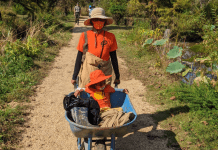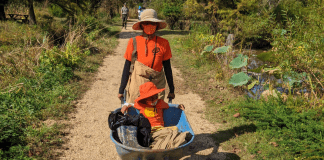We all fear what will happen to our children when we are not there to protect them. In light of Bullying Prevention Month and Learning Disabilities Awareness Month, it is hard for me to face my biggest fear as a mother of a child with autism and learning disabilities – bullying.
Is she being treated differently because she is different? Is that why she doesn’t want to go to school everyday morning? My daughter has a tough time expressing herself. She can’t tell me her friends names or if she even has any friends. When I ask her about her day, all she tells me is, “good.” When I ask her “What did you learn at school today?” Her response is usually, “homework.” She probably couldn’t tell me if she is being bullied by her peers.
By the numbers
Let’s face it, all children are at risk of bullying and the outcomes can include poor school adjustment, sleep difficulties, anxiety, and depression. Current studies show, 20% students are bullied. The numbers jump up from there based on race, sexual orientation, and disability. 35% of students with disabilities are bullied. Unfortunately, the studies reveal that students with disabilities not only face higher rates of victimization, but they are more likely to be bullied over time. The most discouraging part for parents is that students in special education programs were told not to “tattle” twice as often as their typically developing peers.

Bullying Prevention
On the bright side, studies also give us information on how to stop or prevent bullying situations. One of the most effective ways to stop bullying situations is peer intervention. On the other hand, an effective way to prevent bullying is through school based prevention programs.
This gives me hope that if my child has one friend to stick up for her in a bullying situation, it is likely to stop. Bullying Prevention and Learning Disabilities Awareness Month gives us an opportunity to talk to our children about learning differences and how to stick up for their friends.
How to Talk to Your Children About Learning Differences
Luckily our school is very supportive of learning differences and has ongoing discussions with all students about how everyone is different. How can you talk to your child about learning differences?
- Take opportunities to explain that everyone is different and learns differently.
- Explain that some children need special assistance to help them in class or while taking tests.
- Try to answer your child’s questions honestly.
- Express that differences are what makes us unique and the world a better place.
- Try asking a question-what would the world be like if everyone was the same?
- Let your child know it is mean if they point or call people names and it is kind to say “hello.”
How to Talk to Your Children About Bullying Prevention
A few ways you can talk to your child about bullying include:
- Define bullying.
- Verbal
- Name calling
- Teasing
- Threats
- Physical
- Pushing
- Hitting
- kicking
- Social
- Intentional exclusion
- Spreading rumors
- Embarrassing someone in public
- Ask them how they feel when someone is mean to them.
- Give them strategies to stop bullying.
- Say “I don’t like that,” or “please stop.”
- Tell a trusted adult
- Try to avoid the instigator
- Walk away
- Stay close to adults
- Stay close to other kids
- Tell mom or dad when they get home
- Ask them to help a friend if someone is being mean to them.
- Verbal
Click Here for a conversation starter guide to help talk to your child about bullying.
Although my child cannot express when someone is treating her differently, I pray that she has good friends that will stick up for her in tough situations. I hope that you take the time to talk to your children and that when I am not there to protect my daughter, they will.
For more information on bullying and bullying prevention visit stopbullying.gov.










![Kristyn King: Mom of the Month [March 2024]](https://dcmoms.com/wp-content/uploads/2024/03/March-218x150.png)





Omg i’m coming across this article super late but I am so grateful for it. My toddler has autism and also has a similar response after school which fills me with anxiety and fear at times. It’s nice to know others can relate but also to underscore the importance as parents to be proactive when it comes to helping other children be used to neurodivergent as well as neurotypical, and just in general accept those who are different
Comments are closed.